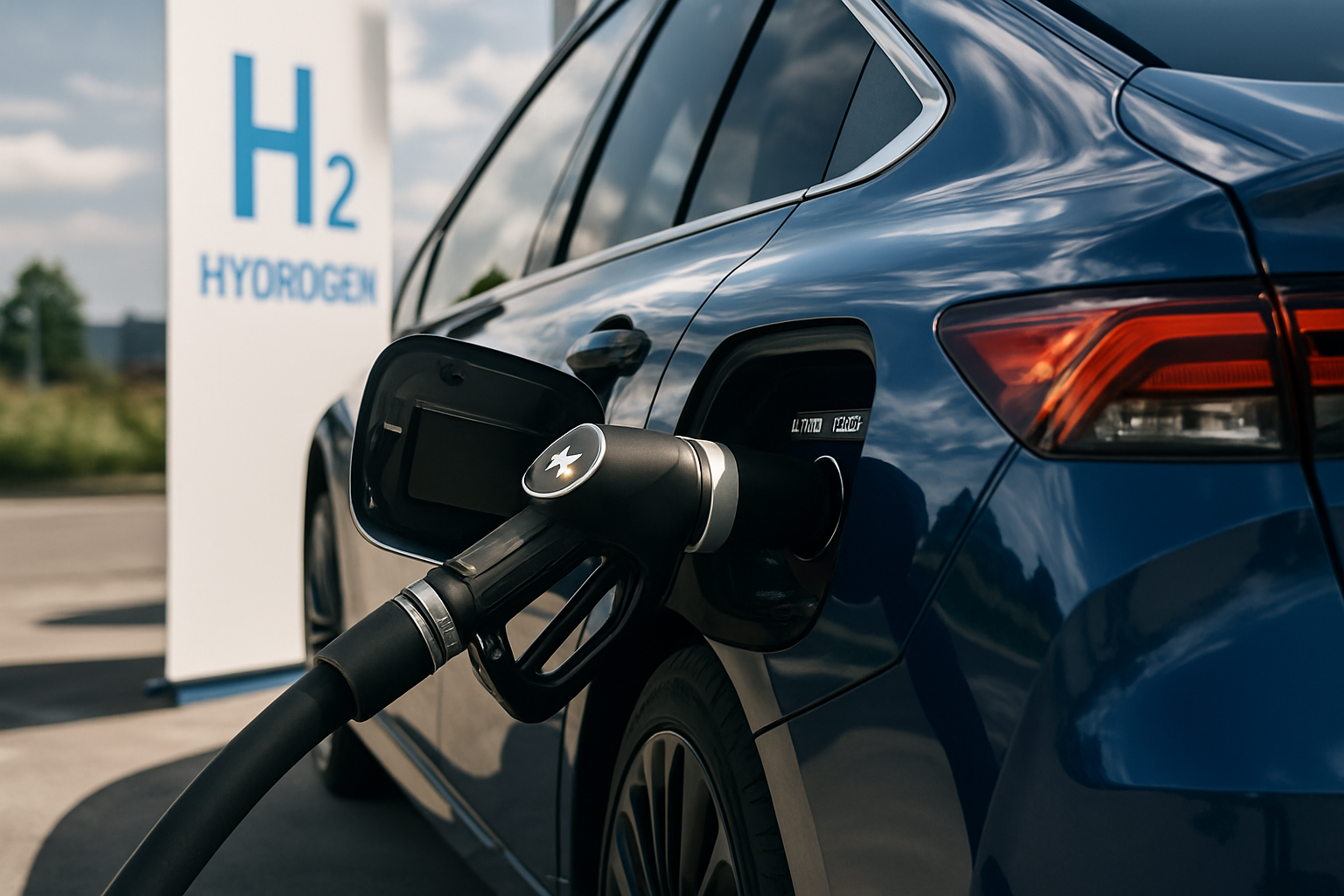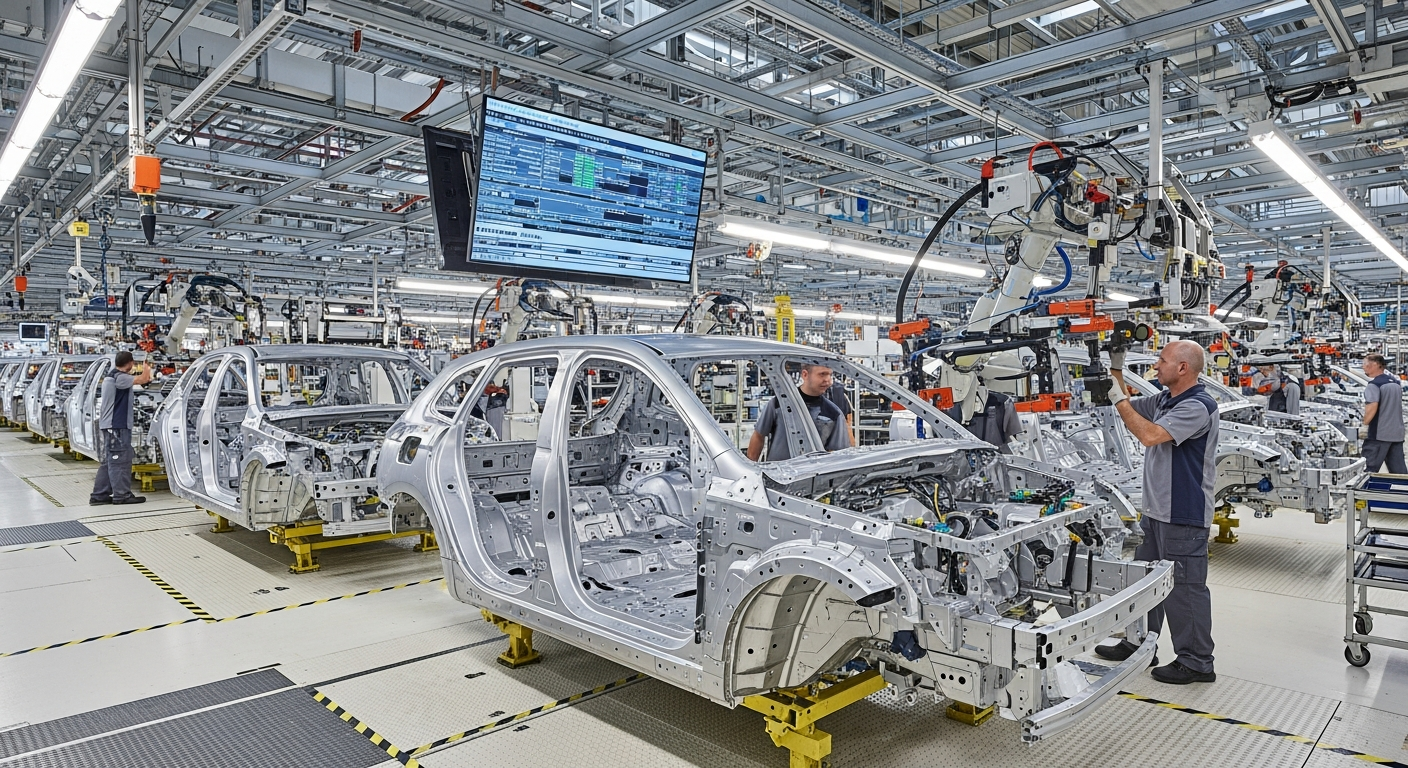Hydrogen Fuel Cells: The Quiet Revolution in Automotive Power
In the ever-evolving landscape of automotive technology, hydrogen fuel cells are emerging as a promising alternative to traditional powertrains. This cutting-edge technology harnesses the power of hydrogen to generate electricity, propelling vehicles with zero emissions and remarkable efficiency. As automakers and researchers continue to refine and develop hydrogen fuel cell systems, we stand on the brink of a potential paradigm shift in how we power our vehicles. Let's delve into the world of hydrogen fuel cells and explore their potential to reshape the automotive industry.

A Brief History of Hydrogen in Automotive Applications
The concept of using hydrogen as a fuel source dates back to the early 19th century, with Sir William Grove’s invention of the first fuel cell in 1839. However, it wasn’t until the mid-20th century that serious consideration was given to hydrogen fuel cells for automotive use. NASA’s space program in the 1960s brought fuel cell technology to the forefront, using it to power spacecraft systems and provide drinking water for astronauts.
In the automotive sector, General Motors unveiled the world’s first hydrogen fuel cell vehicle, the Electrovan, in 1966. Despite this early breakthrough, widespread adoption remained elusive due to high costs and infrastructure challenges. It wasn’t until the late 1990s and early 2000s that major automakers began investing heavily in hydrogen fuel cell research and development, driven by increasing environmental concerns and the search for alternative energy sources.
Advantages of Hydrogen Fuel Cell Vehicles
Hydrogen fuel cell vehicles (FCVs) offer several compelling advantages over traditional internal combustion engines and even battery electric vehicles (BEVs). Perhaps the most significant benefit is the rapid refueling time, comparable to that of gasoline-powered vehicles. While BEVs can take hours to fully charge, FCVs can be refueled in a matter of minutes, making them more suitable for long-distance travel and commercial applications.
FCVs also boast impressive range capabilities, often exceeding 300 miles on a single tank of hydrogen. This range anxiety-free performance is particularly attractive for consumers who frequently travel long distances or live in areas with limited charging infrastructure. Additionally, hydrogen fuel cells maintain their efficiency in cold weather conditions, unlike battery-powered vehicles which can experience significant range reduction in low temperatures.
From an environmental perspective, FCVs produce zero tailpipe emissions, with water vapor being the only byproduct of the power generation process. When hydrogen is produced using renewable energy sources, the entire well-to-wheel emissions profile of FCVs can be virtually carbon-neutral, offering a truly sustainable transportation solution.
Challenges and Hurdles to Overcome
Despite their potential, hydrogen fuel cell vehicles face several significant challenges that have hindered widespread adoption. The most pressing issue is the lack of hydrogen refueling infrastructure. As of 2021, there were only a handful of hydrogen fueling stations available to the public in most countries, with the majority concentrated in California, Japan, and parts of Europe. Expanding this infrastructure requires substantial investment and coordination between governments, energy companies, and automakers.
The production and distribution of hydrogen itself present another hurdle. While hydrogen is the most abundant element in the universe, it doesn’t naturally exist in its pure form on Earth. Current methods of hydrogen production, such as steam methane reforming, can be energy-intensive and often rely on fossil fuels. Developing more efficient and sustainable hydrogen production methods, such as electrolysis powered by renewable energy, is crucial for realizing the full environmental benefits of FCVs.
Cost remains a significant barrier to widespread adoption. Fuel cell systems are complex and currently expensive to produce, resulting in higher vehicle prices compared to conventional cars. Additionally, the cost of hydrogen fuel itself is generally higher than gasoline or electricity on a per-mile basis. As production scales up and technology improves, these costs are expected to decrease, but achieving price parity with conventional vehicles remains a challenge.
The Road Ahead: Innovations and Developments
Despite these challenges, ongoing research and development efforts are steadily advancing hydrogen fuel cell technology. Automakers like Toyota, Honda, and Hyundai have already introduced commercially available FCVs, with others following suit. These vehicles serve as proof of concept and are helping to drive down costs through economies of scale.
Innovations in fuel cell design are improving efficiency and reducing the use of expensive materials like platinum catalysts. For example, researchers are exploring the use of iron-based catalysts and novel membrane materials that could significantly reduce production costs while maintaining or even improving performance.
In the realm of hydrogen production, promising advancements are being made in electrolysis technologies. Companies and research institutions are developing more efficient electrolyzers that can produce hydrogen using renewable electricity from solar and wind power. This green hydrogen production method could pave the way for a truly sustainable hydrogen economy.
The heavy-duty transportation sector is emerging as a key market for hydrogen fuel cell technology. Long-haul trucking, buses, and even trains are ideal applications for fuel cells due to their need for long range and quick refueling. Several companies are already testing hydrogen-powered trucks and buses, with some entering commercial service in various parts of the world.
As we look to the future, hydrogen fuel cells hold immense potential to revolutionize the automotive industry and contribute to a cleaner, more sustainable transportation sector. While challenges remain, the steady progress in technology, infrastructure development, and cost reduction suggests that hydrogen fuel cell vehicles may play a significant role in the diverse ecosystem of future mobility solutions. As automakers, policymakers, and researchers continue to collaborate and innovate, we may yet see hydrogen power take its place alongside other alternative energy sources in shaping the future of transportation.






